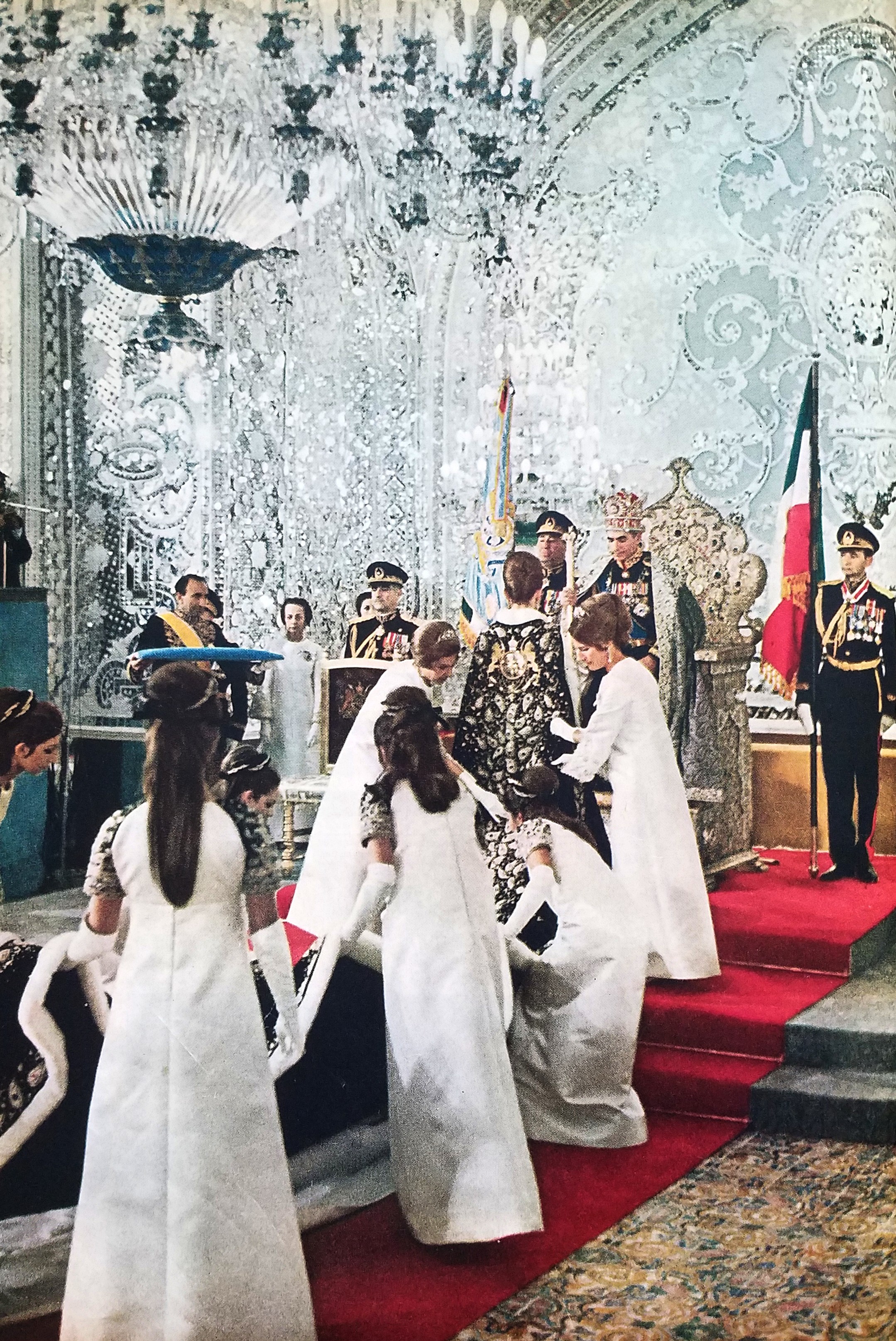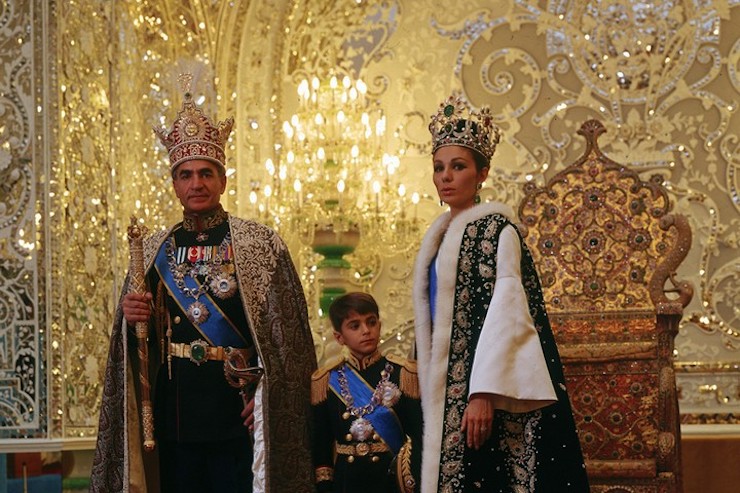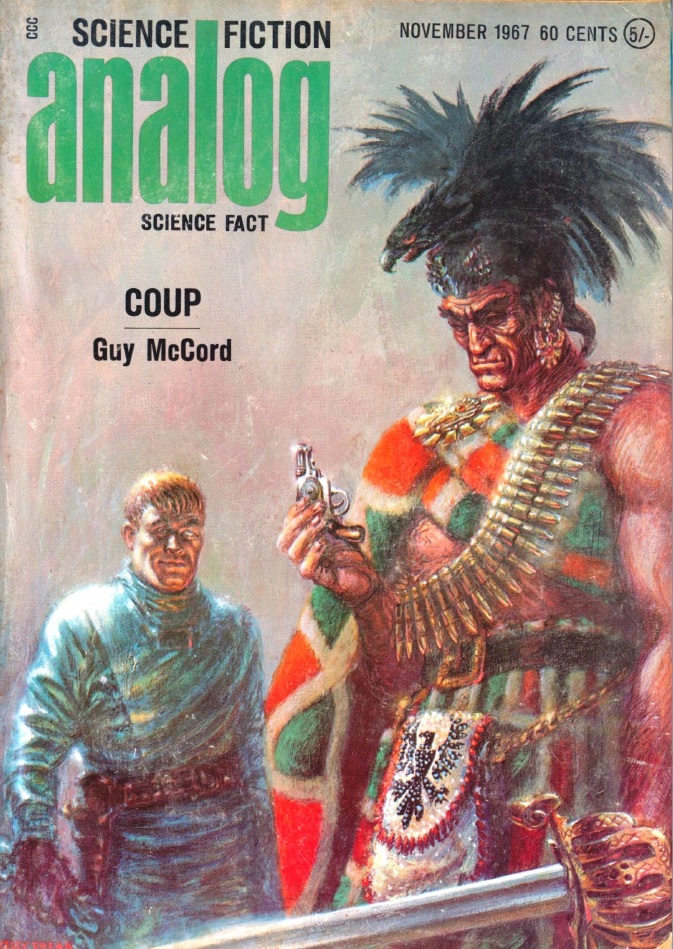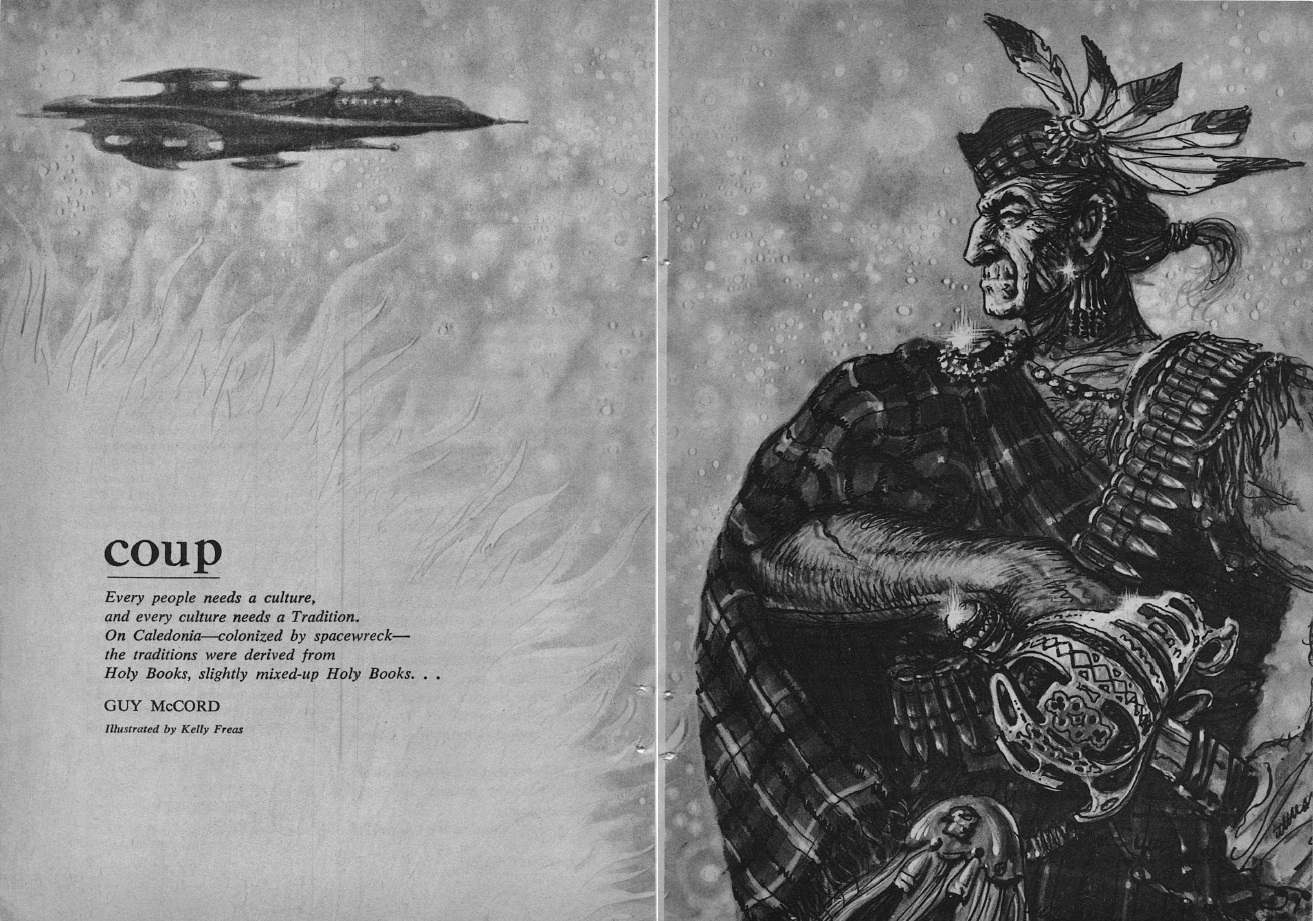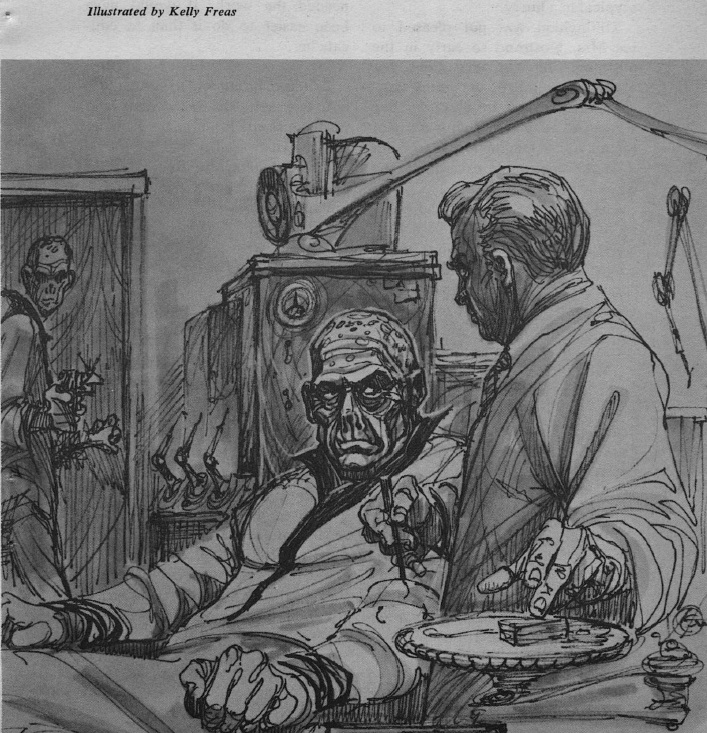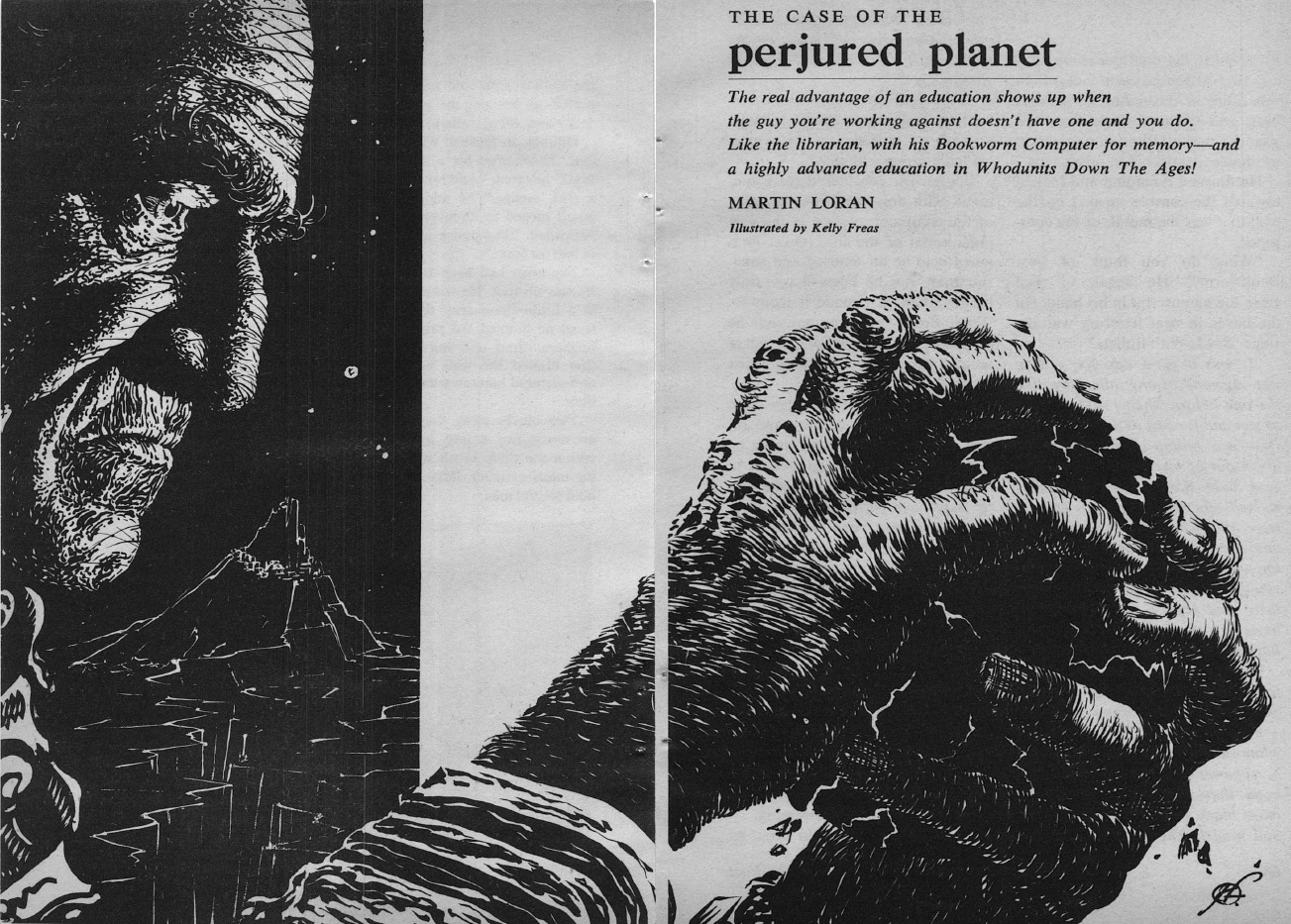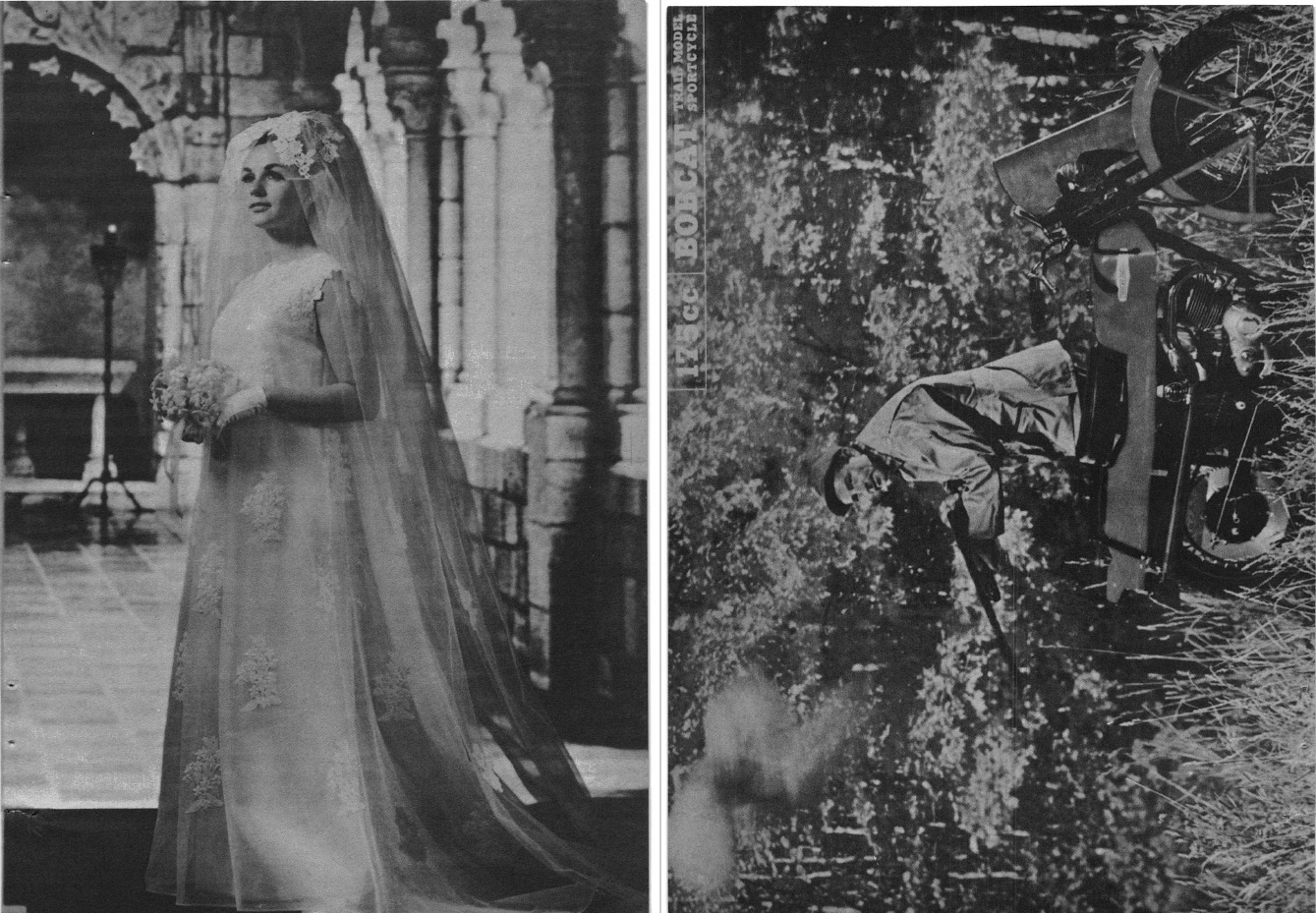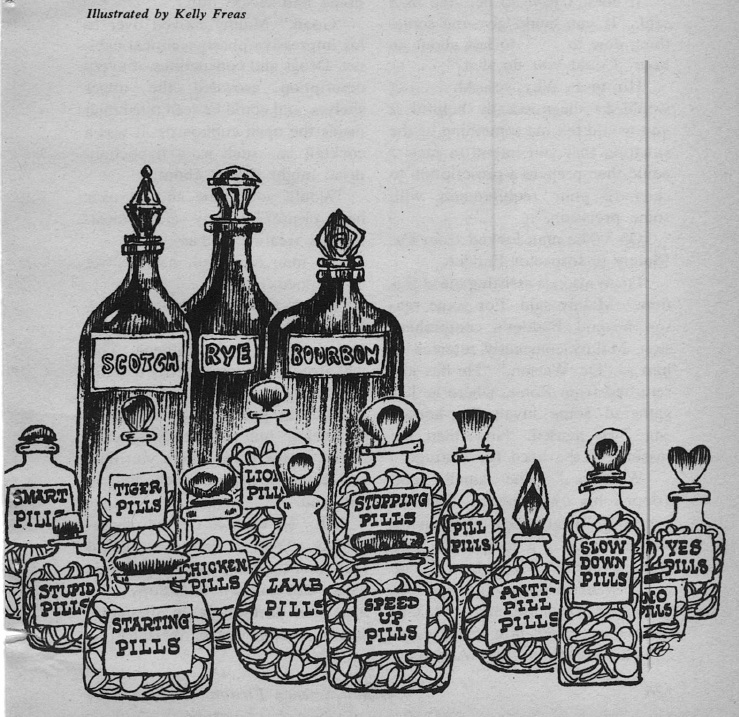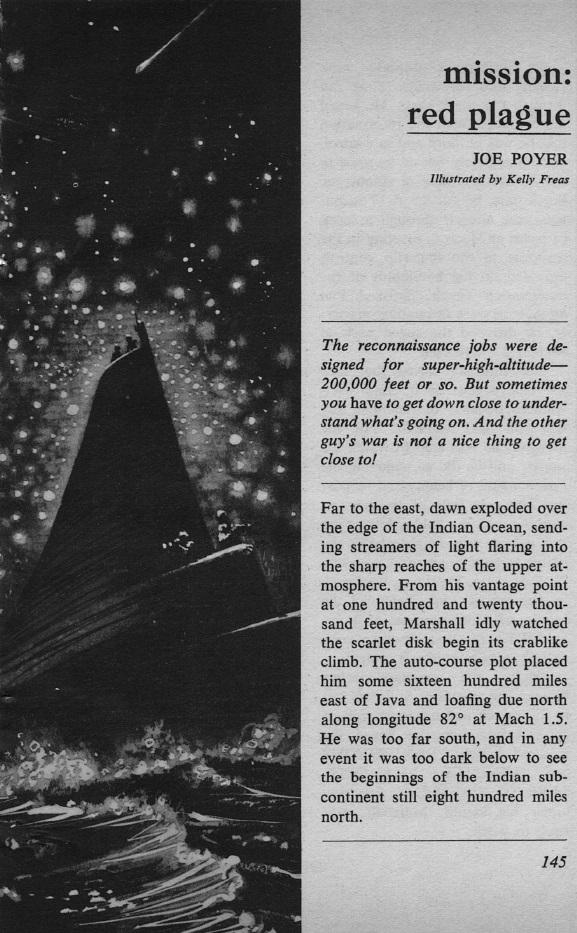
by Gideon Marcus
We made it
And so, 1968 ends with a bang, not a whimper. After a miserable year that saw the loss of Dr. Martin Luther King Jr. and Robert Kennedy, the capture of the Pueblo, the Tet Offensive in South Vietnam, the riots at the Democratic Convention, the election of Richard Nixon, and many other tragedies, we finally have some good news to end the year.
First, there was the stirring flight of Apollo 8, a bit of unmitigated good that gave the holiday season additional poignancy. And then, just last week, the crew of the Pueblo were finally released. Vietnam peace talks appear to be stumbling forward.
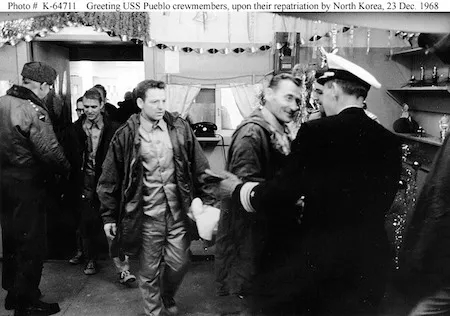
On a more personal level, I got to prepare the Galactic Stars for the year, which involves reading all of the four and five star stories recommended by my colleagues. For one month, everything I read is terrific.
It is in this euphoric mode that I get ready for tonight's New Year's celebration…and present to you the last of this month's magazines, the January 1969 Analog.
We read it
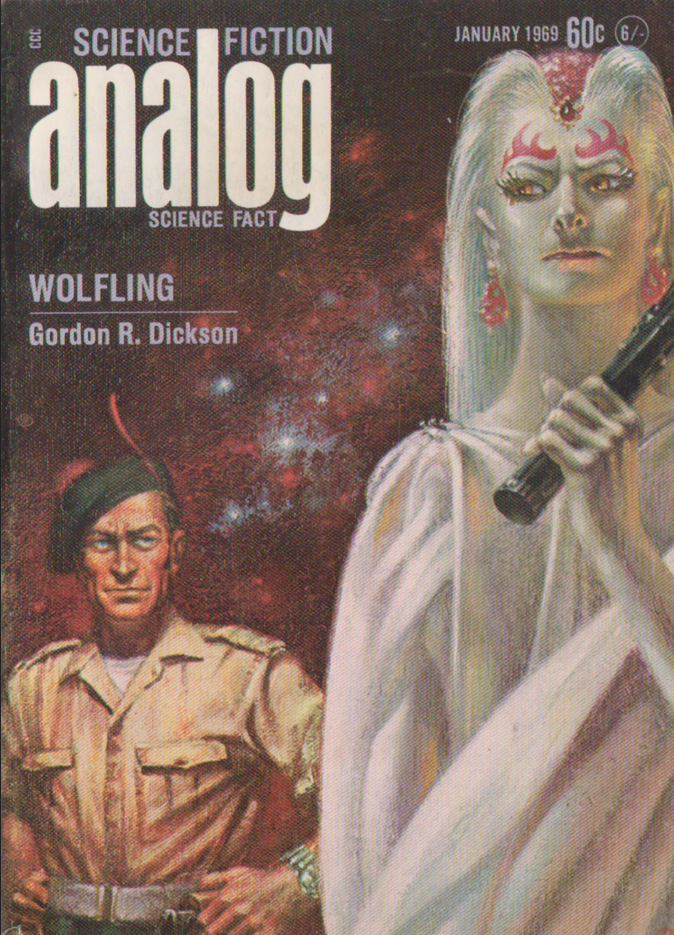
by Kelly Freas
Wolfling (Part 1 of 3), by Gordon R. Dickson
A galaxy-spanning empire makes contact with Earth. Amazingly, the denizens of the sprawling star-society appear to be humans, though the ruling caste is distinctive due to selective breeding—onyx white, seven feet tall, and brilliant. Because of the clear relation between the species, the prevailing belief is that Earth is some kind of lost colony.
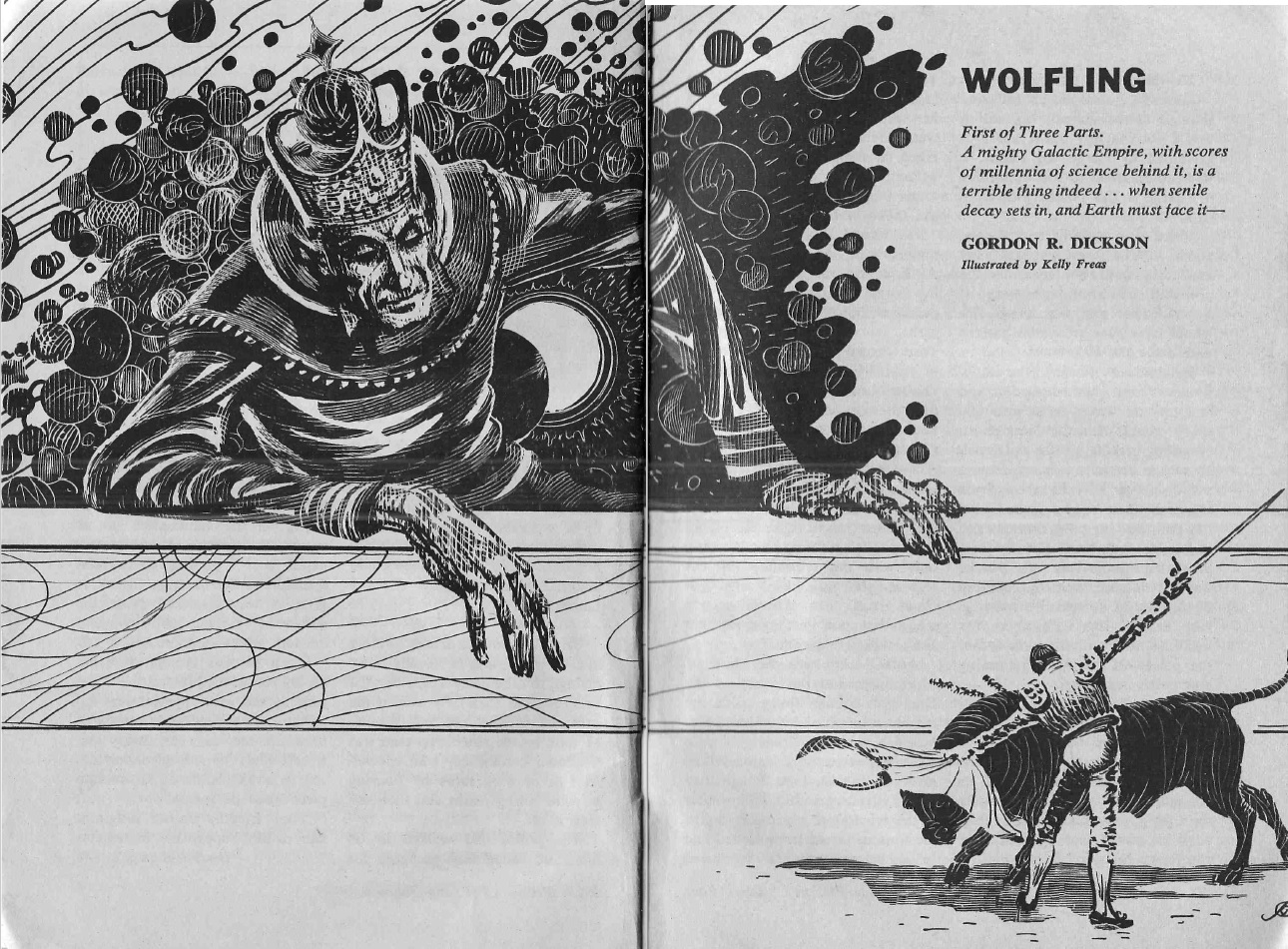
by Kelly Freas
James Keil, bullfighter extraordinaire, is adopted by the High-born for display at the Throne World. Keil is also a trojan horse, dispatched by the United Nations to gather information about the non-alien aliens.
The hidebound High-born possess tremendous powers, from teleportation to matter conversion, but they are also just as petty and Machiavelian as any Earthers. Keil's only ally is Ro, a (comparatively) dark-skinned High-born tasked with caring for the High-born queen's menagerie.
Dickson spins an interesting tale, detailing how the "Wolfling", Keil, walks the diplomatic tightrope, navigating a literal lion's den all through his FTL journey to the heart of the galaxy. Though the story featueres eugenics, it is clear that the tale is an indictment rather than an endorsement. Of course, the message might have been more strongly made were Keil's surname "Chang" or "Ojukwu".
Four stars so far.
The Hidden Ears, by Lawrence A. Perkins
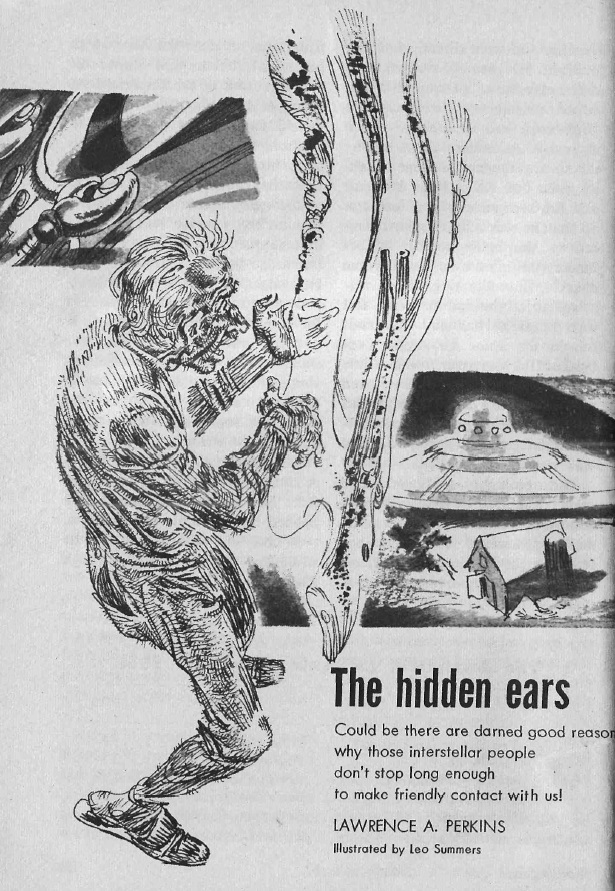
by Leo Summers
A renegade UFO on the lam breaks through the cordon placed around Earth by the interstellar fuzz, taking refuge in the barn of a rural homestead. The cops scratch their carapaced heads for a while, until they figure out a way to locate the hidden fugitive. The genuinely amusing conclusion is the one bright spot in an otherwise frivolous story.
Two stars.
The Other Culture, by Ted Thomas
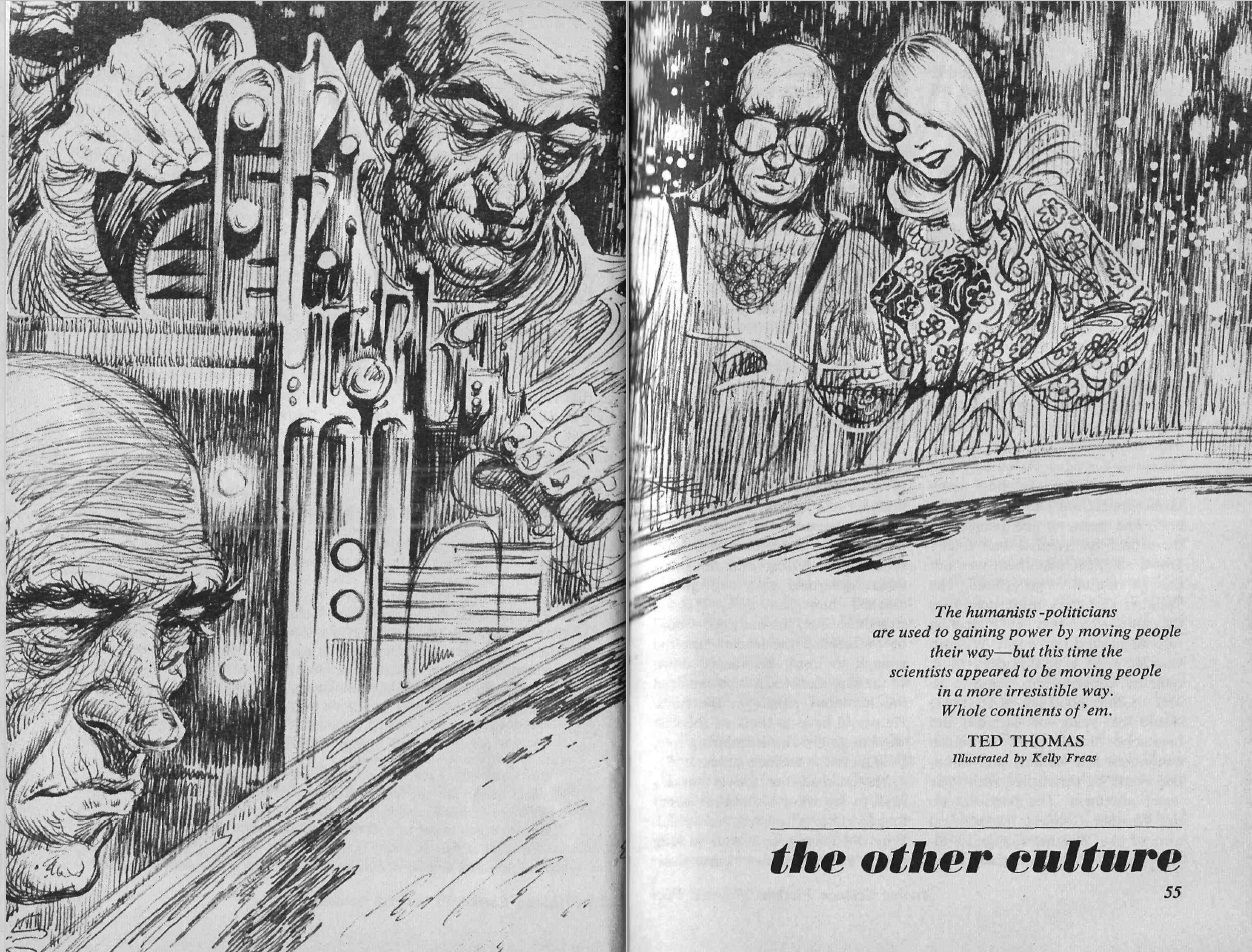
by Kelly Freas
If ever the word "pedestrian" described a story, it's now. Thomas strings the most colorless sentences together, most of which are superfluous, and none of which are more than adequate.
The plot? The Weather Council has to decide who will be prioritized for the increasingly demanded amount of world rainfall. Because, as we all know, that's the kind of minor issue that is solved at a single conference.
That would be silly enough, except for the bombshell dropped about a quarter-way into the story: continental drift is suddenly speeding up, and all land masses will reunite as Pangaea in half a century.
Turns out this (ludicrous) plan is the work of BROW, the Brotherhood of the World, a rival underground (no pun intended) society. But this potentially disastrous plan also, fortuitously, contains the solution to the water problem.
"Culture" is a talky, ridiculous story with no merits whatsoever. It makes no scientific sense—moving continents around like bumper cars will produce a million 1906 San Franciscos—and the prose is dull as dishwater, as are all of the "characters".
One star.
"On a Gold Vesta … ", by Robert S. Richardson
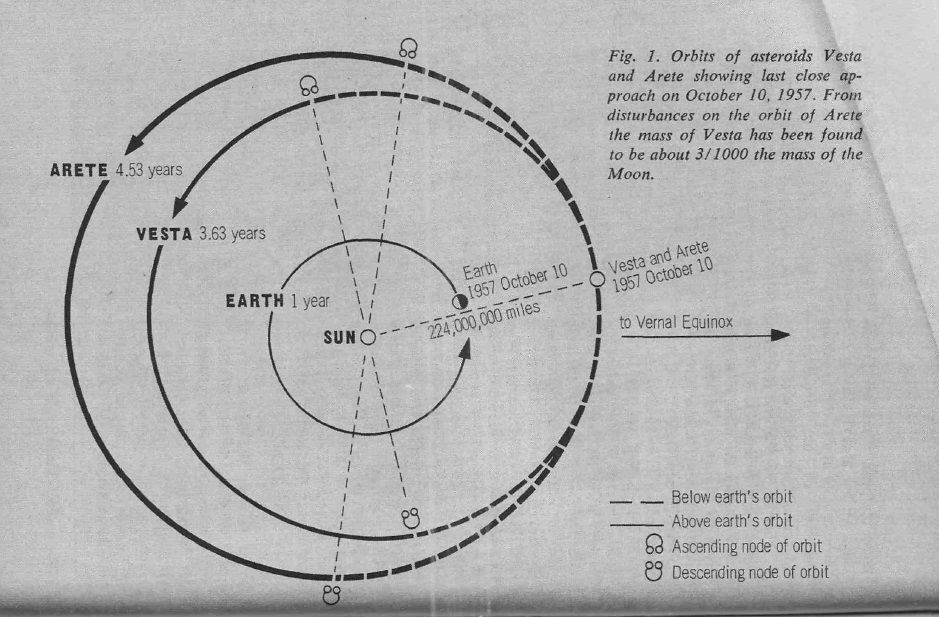
This is a pretty neat piece about how we measure the density, size, and albedo (reflectiveness) of the myriad minor planets in the solar system. All of these values are related, and without a firm grasp of at least one of them, it's virtually impossible to estimate the others. A little short, but valuable.
Four stars.
Classicism, by Murray Yaco
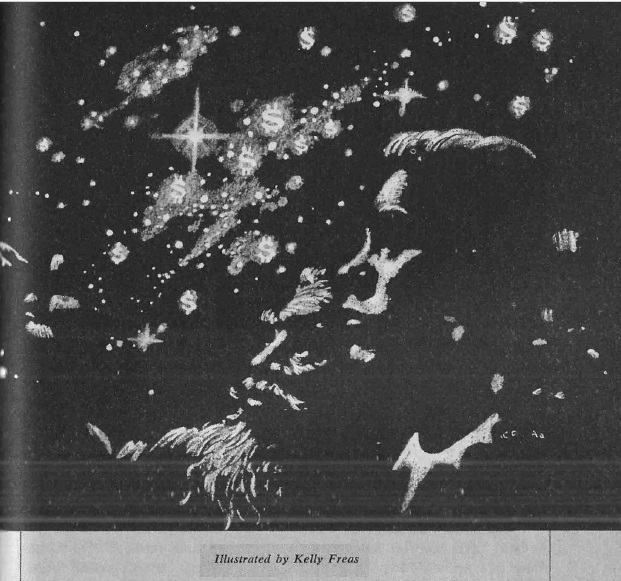
by Kelly Freas
It's been eight years since we last heard from Mr. Yaco, and quite frankly, he might as well have stayed in hiding. This is the "funny" tale of a young engineer from the last planet that believes in "classical economics". He is sent to the big universe to become a cog in the command economy—specifically, to manage planet-wide garbage operations. In his spare time, he works on perfecting a teleportation system, which he hopes to sell at great profit.
Too silly to be truly offensive; too lightweight to be worth your time. Two stars.
Krishna, by Guy McCord
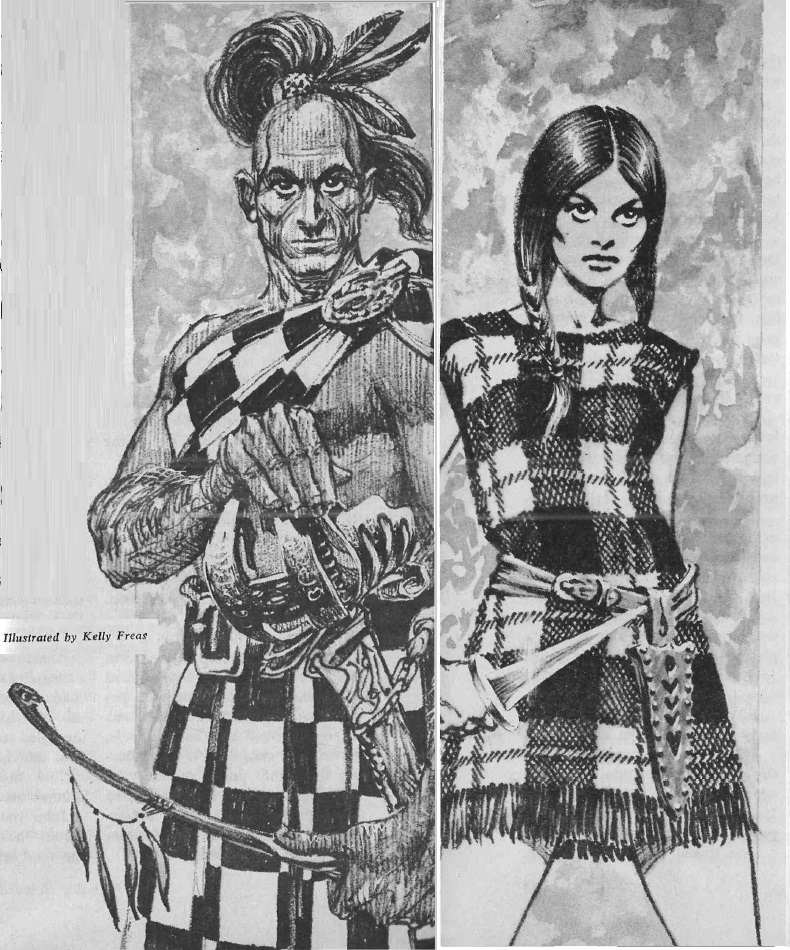
by Kelly Freas
Last year, Mack Reynolds…er… "Guy McCord" wrote a tale about Caledonia, a strange planet that was an odd combination of Scots and American Indian societies. Krishna is a direct sequel, and a much better (though incomplete) story.
John of the Hawks is now a man, Raid Cacique for his clan, in fact, when Outworlders return. The villain of the last piece, Mr. Harmon, is now wearing the black cloak of an acolyte of Krisha. His ship, the Revelation, houses a bunch of missionaries who offer cures to all diseases if only they will partake of soma, a powerful hallucinogen. Those who ingest soma become peaceful, one with Krishna…but also sterile and apathetic. Obviously, such is anathema to the hardscrabble, lusty Caledonians.
"McCord" balances the clan politics with the Outplanet menace much better this time around, and John's endeavor to "steal" Alice Thompson for a bride is pretty gripping. I don't mind that this novella is obviously the first (second?) installment in a novel, and I look forward to the next one.
Four stars.
We rate it

The word for this month is "vicissitudes". On the face of it, none of the magazines did very well—Analog finished at 2.9 stars, well above Amazing (2.4 stars), but below New Worlds (3 stars), Galaxy (3.1 stars), IF (3.2 stars), and Fantasy and Science Fiction (3.3 stars).
Yet, every mag save Amazing had at least one four-star story in it. Several had more than one. If you took all the good stuff this month, you could fill two magazines with it and have some quite good reading ahead of you. Women contributed 12% of the new fiction published, which is on the high end.
So, a foreboding or auspicious sign for the New Year, depending on whether you fill your scotch half full or half empty with soda. Either way, here's looking forward to a lovely 1969 with you all. May your holiday season be bright!


![[December 31, 1968] Auld Lang Syne (January 1969 <i>Analog</i>)](https://galacticjourney.org/wp-content/uploads/2023/12/681231cover-672x372.jpg)


![[October 31, 1967] Same ol' (November 1967 <i>Analog</i>)](https://galacticjourney.org/wp-content/uploads/2022/10/671031cover-672x372.jpg)
